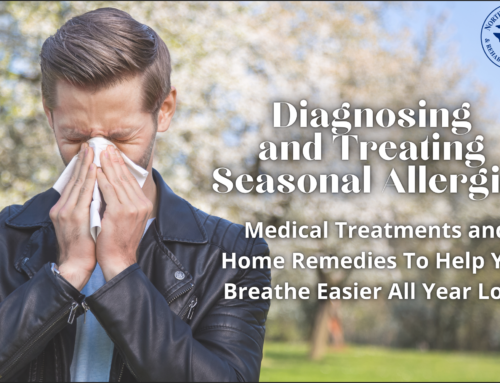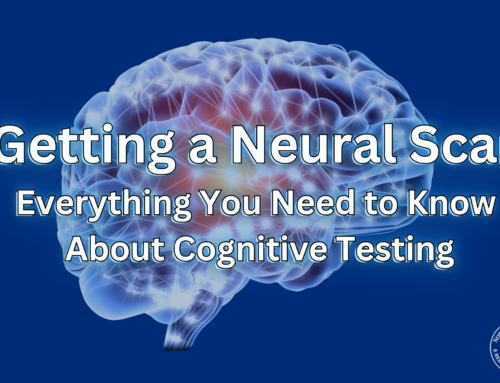
Almost everybody deals with some amount of stress in their day-to-day lives. Between work, money, family, and health, there are plenty of things to worry about. So, how does stress impact health? And should you be concerned about that too?
The simple answer is that yes, stress can affect your health, both physical and mental.
How it impacts your health depends on how much stress you’re carrying, how your body reacts to it, how much you can manage it, and how healthy you are.
What is Stress?
Stress is typically characterized by the emotional state of being worried or feeling pressured and tense. The World Health Organization describes it as “a natural human response that prompts us to address challenges and threats in our lives.”
That response is also a physical one, too.
When we perceive a threat or something that causes us stress, our nervous system relays a series of messages. These messages result in the release of adrenaline and cortisol.
Adrenaline makes our hearts beat faster, our muscles tense, and our breathing increases. This is called the “fight or flight response.”
After the initial surge of adrenaline, your body releases cortisol to increase the amount of glucose in your blood. Cortisol allows your body to stay prepared for whatever threat it perceives.
During a particularly stressful moment, like a near-miss car accident or sprint to help a child in danger, the stress response is almost like a superpower. It allows us to access reserves of strength we don’t typically need.
But when we struggle with frequent or chronic stress, these physical responses take a significant toll on our bodies.
Stress is normal; everybody experiences it occasionally. Some people deal with it all the time.
Since we all experience and manage it differently, stress can impact health in many unique ways. However, some symptoms and conditions are prevalent. If you’re aware of them, they can be both preventable and treatable.

How does stress impact health? It starts in the brain and can cause a cascade effect on your body if unmanaged.
How Does Stress Impact Health?
One of the most problematic aspects of chronic stress is how it can affect your mental health.
People may develop anxiety disorders, depression, eating disorders, and worse if they don’t learn how to manage their stress well.
The physical effects of stress aren’t as apparent, especially since many of them can be caused by other factors such as genetics, diet, lack of exercise, etc.
Because everybody’s bodies react to it differently, people experience a range of problems that aren’t always easy to attribute directly to stress. So many other factors also cause these problems that stress may only be the indirect cause.
However, through ongoing research, we know that stress and physical health are firmly linked, whether directly or indirectly. We also know these are just some issues that impact health and well-being due to stress.
Cardiovascular Disease
Cardiovascular disease continues to be the leading cause of death among adults in the U.S.
While people experience cardiovascular disease for many different reasons, stress is certainly one of them.
When your heart and blood vessels are consistently working harder than they should due to increased adrenaline levels, problems start occurring. Over time, you increase your risk of hypertension, chronic heart disease, heart attack, and stroke.
Chronic stress may also be a possible reason for other factors that lead to heart disease, including smoking, obesity, poor eating, not exercising, and bad sleep habits.
Digestion Issues
When you’re sympathetic nervous system is activated during the fight or flight response, digestion slows down. During those moments, other bodily functions become much more critical than digestion.
If this is only a temporary and occasional event, your body recovers quickly and easily.
But in the case of chronic stress, your digestive system becomes unnaturally slower. If you’ve ever heard of people with high stress levels getting ulcers, that’s why.
In addition to painful ulcers, a too-slow digestive system can lead to:
- constipation,
- diarrhea,
- heartburn,
- indigestion,
- and nausea/vomiting
Eventually, you may develop chronic conditions like irritable bowel syndrome (IBS), acid reflux, and Crohn’s disease.

Stress can cause pain in many parts of the body.
Pain
One stress-inducing symptom that may not be life-threatening but can undoubtedly be life-altering is pain.
During the stress response, your muscles become tense and ready to “fight or flee.” When you are stuck in that mode for hours a day, they spasm and become inflamed, sore, or exhausted.
Not only will this cause general pain, but it can also lead to further injuries, such as tears.
Many people also experience headaches with chronic stress. They may be caused by tension in your neck and back or increased blood pressure, or a combination of factors.
Weight Control
Another issue that often occurs with chronic stress is weight gain. This happens for a series of reasons.
To lower the amount of cortisol in your body, your brain makes you crave carbs. Carbs lead to a higher release of insulin, which should counteract the cortisol. Unfortunately, since your stress response continues to release cortisol, the two hormones combined create high amounts of a fat-storing enzyme called lipoprotein lipase (LPL).
Over time, you begin to store more and more fat, especially around your stomach.
This chain of events also decreases your body’s ability to react to insulin and other hunger hormones as it should. You’ll eat more than necessary because those hunger hormones aren’t telling your brain to stop.
(That’s why diabetes medications, such as Wegovy injections, work so well for weight loss. Semaglutide stands in for those hormones, helping you control your hunger and eating habits better.)
On top of that, when your body is in “fight or flight” mode, your metabolism slows because it’s not one of the systems your brain prioritizes. The longer it stays slow, the more weight you gain.
Finally, stress also makes it easier to gain weight for many indirect reasons. It can:
- Lower energy, making it more challenging to exercise
- Change your sleeping habits, which is a factor in weight control
- Lead to depression and anxiety, conditions that often lead to unhealthy eating and less movement
- Cause overeating and binging because food becomes a source of comfort and relief
Since weight gain can lead to lower confidence and potential health problems, this may become yet another cause of stress.

Learning how to manage your stress can lessen or reverse its impact on your health.
Managing Your Stress Lessens its Impact on Your Health
These are only a few of the symptoms and conditions caused by stress.
Unmanaged stress can also lead to infertility, hair loss, worsening of pre-existing conditions, lower immune system, and many other problems.
Fortunately, managing stress is possible. And there’s so much help out there for those who aren’t able to do it on their own.
When you can lower your stress levels, many of these health problems will resolve on their own. Those that don’t will be easier to manage and recover from, especially with the help of your healthcare provider.
Once you know how stress impacts your health, you can begin taking the necessary steps to get it under control and reclaim your health and wellness.





